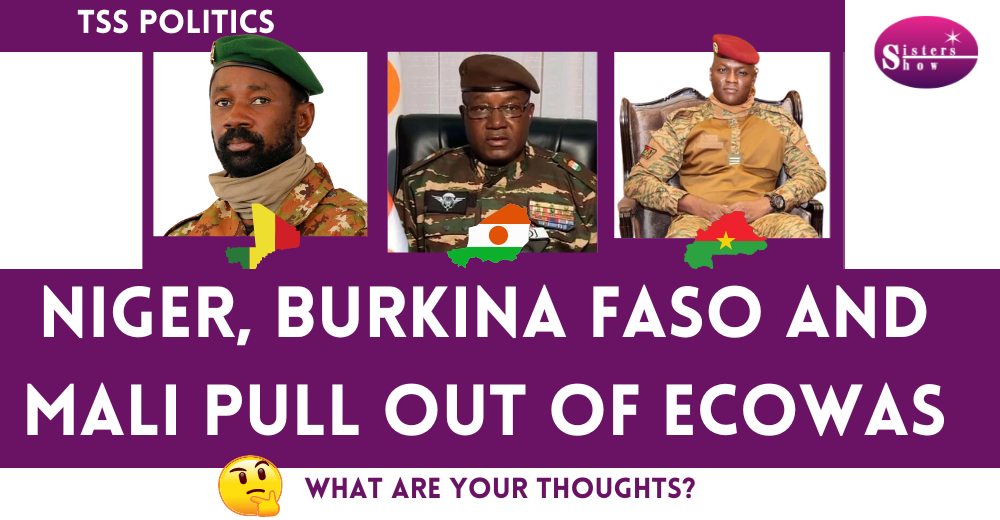
In an unexpected move, Mali, Burkina Faso, and Niger jointly declared their withdrawal from the Economic Community of West African States (ECOWAS). The decision, announced on Niger national television, was described as a “sovereign” choice, citing ECOWAS’s perceived deviation from its founding principles. The Sahel nations accused ECOWAS of neglecting their fight against terrorism and insecurity. This move follows the trio’s mutual defence pact signed in September 2023. The Alliance of Sahel States charter aims to foster cooperation and military assistance in the face of armed rebellion or external threats. The decision highlights growing discontent within the region over ECOWAS’s response to security challenges.
This decision follows their suspension from the bloc, which has been urging a return to democratic rule. Despite being founding members of ECOWAS since its establishment in 1975, relations soured due to military coups in Niger (July 2023), Burkina Faso (2022), and Mali (2020). ECOWAS consistently called for a return to civilian rule in these nations.
Despite facing suspension, sanctions, negotiations, and the threat of military intervention, the military leaders have remained steadfast, accusing ECOWAS of external influence. The junta-led countries, distancing themselves from former colonial power France, have strengthened ties with Russia. In September, they solidified their collaboration by forming The Alliance of Sahel States, a mutual defence pact. The military leaders argue that their focus is on restoring security before organizing elections, citing the challenge of containing jihadist insurgencies linked to al Qaeda and Islamic State. The rift highlights the deepening divide between ECOWAS and these nations, raising concerns about regional stability and the bloc’s ability to address security challenges.




